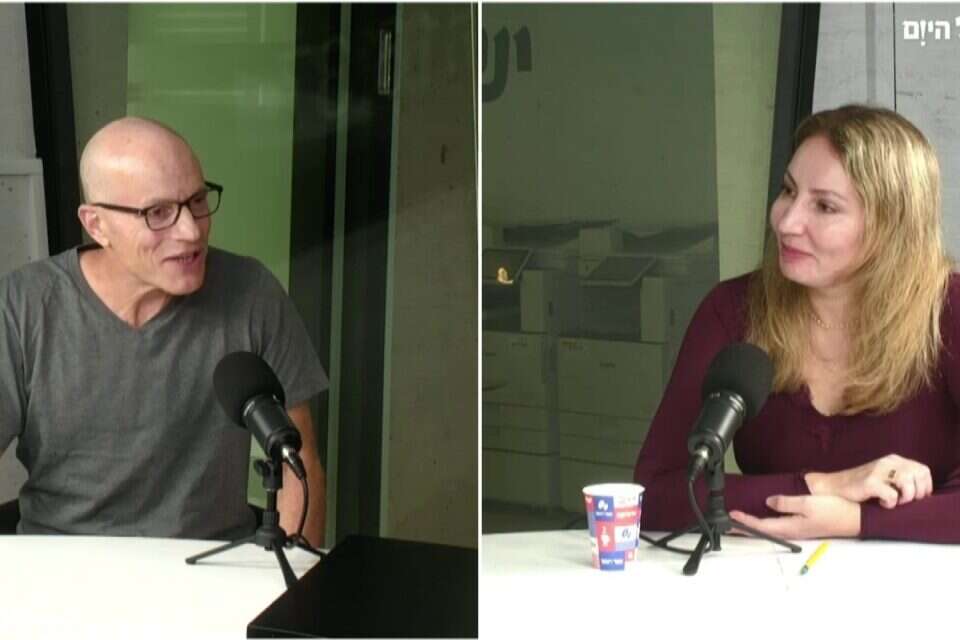This week is expected to be significant for the Israeli economy and society. Food prices continue to rise, state tax revenues are falling, and if that's not enough, this weekend the international rating agency S&P will publish its rating announcement for Israel. Prof. Omer Moav, professor of economics at Reichman University and the University of Warwick in the UK, and a member of the Forum of Economists who signed the letter opposing the legal reform, was a guest on "Added Value," the economic podcast of Israel Hayom, and strongly criticized the government's economic policy.
Moav referred to the unprecedented scope of coalition funds that will be transferred to the religious and ultra-Orthodox public: "Coalition funds are not an unusual phenomenon. What is unusual this time is that not only is it sectoral, but these funds are not intended to connect the ultra-Orthodox sector to the Israeli economy. In fact, the opposite is true. If they were to provide unique funds to the ultra-Orthodox in the framework of vocational training, or in the framework of conditioning core studies or encouraging them to go to work, one could say it's okay - we pay, they get the money, but in the end there is some kind of contribution to the economy here and the haredi community will be able to support itself more." Moav continued: "These additions are only the tip of the iceberg, there is a growing ultra-Orthodox community here that constitutes a very heavy economic burden on the Israeli public when taking into account its costs - the allowances, Education, health, public transportation and the list is long – because these are large, low-income families. The cost is enormous, and we are in a situation that is not sustainable."
Israel Hayom
He added: "I don't accept the claim that this is an underfunded population, this is a population whose contribution to the economy is negative, its contribution to security does not exist, this is a population that sits on the backs of the rest of the public and receives a lot of money, the fact that they live at a low standard of living is their choice, you can't blame the general public here for paying taxes."
So what's the solution?
"We are not one tribe, but there are very different groups here. And it is possible that the Israeli tradition, with its socialist roots, that the state should be involved in everything, leads to the state also funding synagogues and mikvehs and special allowances for Avrachim. I think that we, the secular sector, will understand that it might be better to go to a new contract in which there is less government intervention, and in which each sector will do with its own money what it wants. I would like them not to subsidize my theater, and not to be asked to subsidize the increase in the number of children or mikvehs."
"I wouldn't be surprised if Israel's credit rating dropped"
Regarding S&P's upcoming credit rating announcement, Moav said: "The damage of the coup d'état is already here, the expectation that exploitative institutions will be strengthened and that property rights will be violated, is leading to damage to the economy. I guess the rating agency has a hard time knowing what will happen in the future, and I believe that either they will keep the forecast stable or lower. Raise – they certainly won't."
"The economic situation is worrisome. There is already tremendous damage here – only when comparing the performance of the Israeli stock exchange to stock exchanges around the world, much of the public's pension money is on the Israeli stock exchange, and there has been a huge destruction of the value of the money of elderly people whose pension date is soon. There is a significant increase in public corruption, in the appointment of people according to proximity rather than merit, for example the apparent abolition of the directors' team."
Prime Minister Bibi Netanyahu's news
flash inaugurated the arrival of the Carrefour network in Israel. In the first stage, the chain plans to open 50 branches.
At the festive event, the prime minister said, among other things: "We are fighting the cost of living and increasing competition for the benefit of the citizens of Israel." pic.twitter.com/EqtG1viDGM
— Avi Malki (@Avi_Malki) May 8, 2023
"Reversing the milk price increase was a mistake"
On the increase in milk prices under supervision, he said that Finance Minister Smotrich actually made a mistake in not approving the full 16% increase, and that the state was thereby violating a contract with dairies and dairy farmers. "The structure of the dairy sector in Israel has no justification. There is no reason why you should not produce milk in Israel, there is a planned centralized economy with production quotas, everything is under the control of the government. That's what's causing the cost of living."
Regarding the launch of the Carrefour chain in Israel, Moav said, "It's an excellent thing – but the barriers here in competition are actually not in retail. If we look at profitability in the retail industry, the profit is 1-2% of turnover, which means that salvation will not come from there. If Carrefour also manages to import more easily, that is, if we manage to reap the fruits of the reforms that were incidentally carried out by the previous government, then it will bring about change."
Moav added: "Not only does Netanyahu and Barkat not deserve any credit for Carrefour's arrival in Israel, but it should be mentioned that they voted against all the reforms that the Bennett-Lapid government passed in order to ease regulation and allow more imports and competition."
The podcast is available to listen to on all podcast platforms.
Wrong? We'll fix it! If you find a mistake in the article, please share with us

